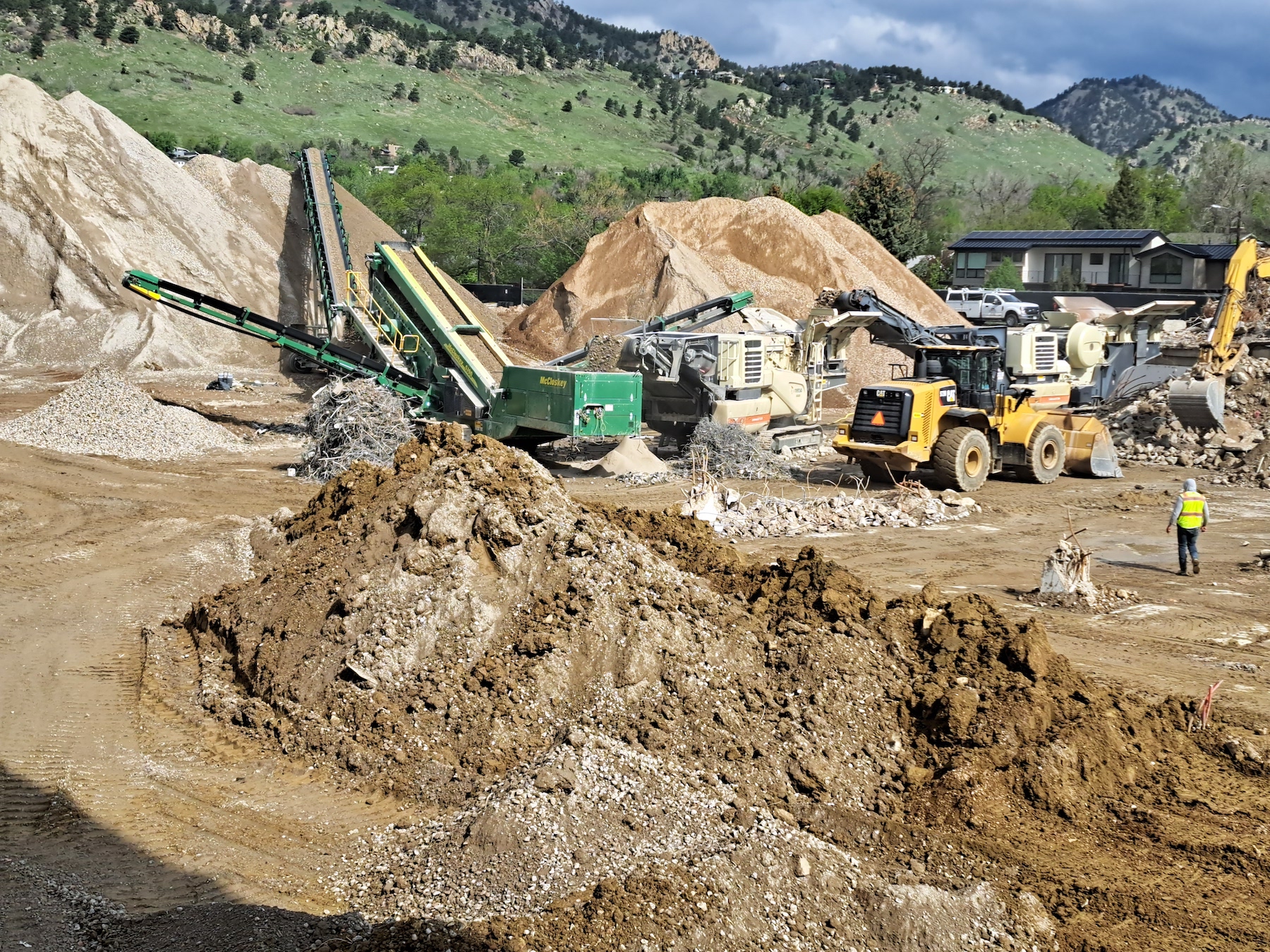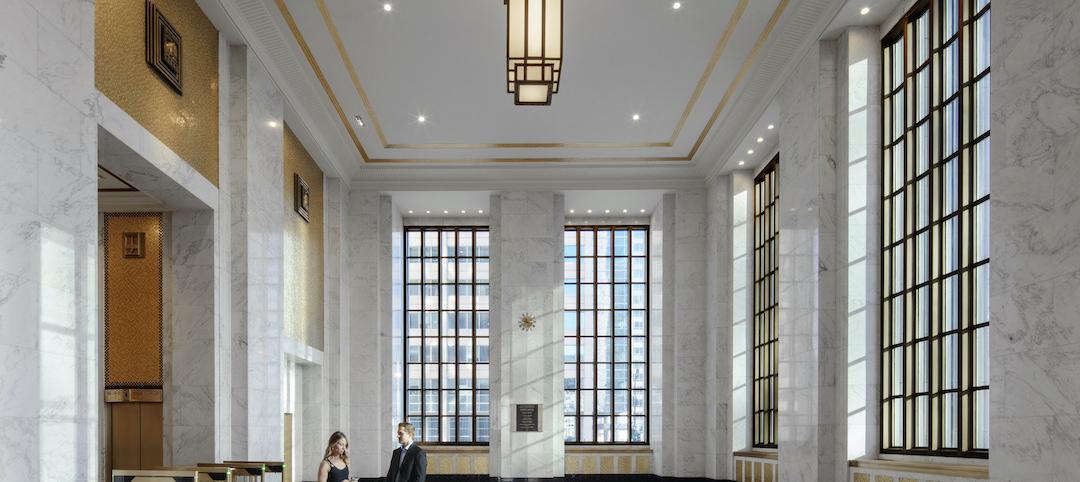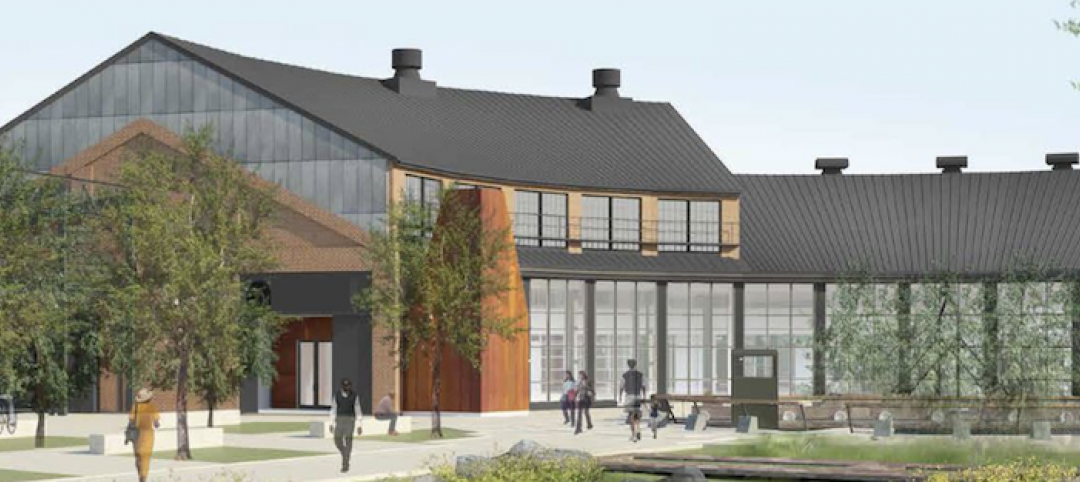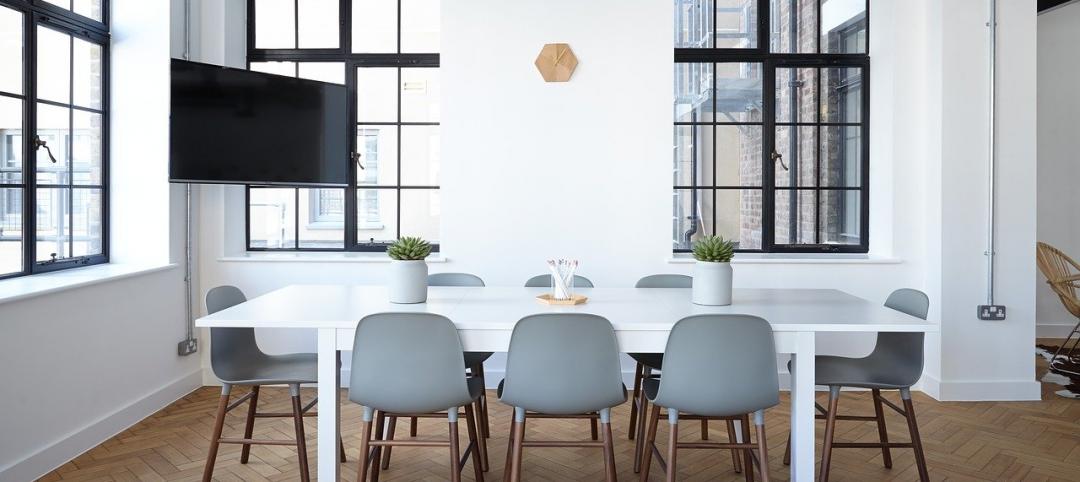Ameresco, a Massachusetts-based cleantech integrator and renewable energy owner and operator, has been working with the City of Boulder, Colo., on the company’s first sustainable deconstruction project, a demolition of the municipality’s former Boulder Community Health Hospital, which had been closed since April 2019.
Boulder has set a target to divert 85 percent of the city’s waste away from landfills by 2025. The former hospital’s deconstructed building materials, and specifically its structural steel, will be used to construct a new fire station and other projects within the city. The firehouse, to be located at 30th and Valmont in Boulder, is scheduled to open in mid-2024. During an early deconstruction phase, the hospital’s pumps, motors, doors, and fixtures, as well as other materials, were auctioned rather than dumped into landfills.
The 250,000-sf hospital’s demolition occurred in two phases, says Rob Sevier, Ameresco’s Senior Account Executive in Denver: the interior demo began in 2019, was slowed because of COVID, and was completed last year. The exterior demo—which includes removing the hospital’s concrete floors, steel, and exteriors—required new permits before it was started last March. Sevier says the deconstruction should be completed sometime this fall.
“This deconstruction project is an important foundational example of innovative sustainability for the communities where we live and work,” said Louis Maltezos, Ameresco’s Executive Vice President, in a prepared statement. Based in Chicago, Maltezos oversees the company’s activities in the central U.S. and in Canada.
The cost of the demolition, and how much of that cost is expected to be recouped by reusing or reselling materials and equipment from the deconstruction, were not available at presstime, according to an Ameresco spokesperson.
Mandate calls for dramatic reuse

In July 2020, Boulder passed a deconstruction ordinance that covers both residential and commercial properties and requires that at least 75 percent by weight of building materials generated from deconstruction must be recycled, reused or go for organics management. Demolition permits now also require a refundable deconstruction deposit of $1 per sf of the structure, with a $1,500 minimum.
Concerning the hospital demo project, Mike White, who works for Ameresco in Boulder, told Aspen Public Radio that “this project is all about reusing, and that’s the key word, reuse versus recycle.”
He said the building’s mortar, brick and concrete are getting crushed into construction grade, compacted, and reused to fill the hole left by the hospital demo. (The site is being redeveloped for affordable housing.) Right now, steel removed from the hospital is being stored onsite, but Sevier says Ameresco and the city will need to find a warehouse once the housing construction gets underway. “It’s also my understanding that Boulder wants to use this steel for other projects,” he says.
The hospital deconstruction contributes to the city’s Circular Boulder program that keeps materials out of landfills and in use as much as possible. “This growing area of work moves beyond recycling and composting to focus on preventing waste and pollution in the first place. It explores innovative ways to curb Boulder’s collective consumption through reuse and repair.”
Along with its waste reduction goals, Boulder is also striving for carbon neutrality by 2035.
Sevier says that reusing the hospital’s steel required having a structural engineer sign off on the materials’ integrity. There was also an extensive permitting process, and safety plans that included asbestos remediation. But that effort was worth it, he says, because “when we can reuse something, we’re also avoiding the impact of generating something new.”
Ameresco isn’t actively looking for other sustainable deconstruction opportunities. The company has had a longstanding business relationship with the City of Boulder, which Sevier points out is more environmentally progressive than most other metros. But the company’s M.O., says its director of marketing and public relations Rhea Hickok, “is to do what makes sense for our customers.” In the future, that is likely to mean “how sustainability fits in,” she says.
Related Stories
Adaptive Reuse | Dec 17, 2020
A train engine repair building is turned into an innovation center that’s part of a massive riverfront redevelopment in Pittsburgh
The adaptive reuse of the Roundhouse is the latest step forward for Hazelwood Green.
Reconstruction Awards | Dec 14, 2020
Wyoming Capitol Square renovation project is all about the details
The Wyoming Capitol Square project has won a Gold Award in BD+C's 2020 Reconstruction Awards.
Urban Planning | Dec 6, 2020
Ford lays out plans for mobility innovation district in Detroit
Its centerpiece is an abandoned train depot whose architecture and decay reflect two sides of this city’s past.
Multifamily Housing | Dec 4, 2020
The Weekly show: Designing multifamily housing for COVID-19, and trends in historic preservation and adaptive reuse
This week on The Weekly show, BD+C editors spoke with leaders from Page & Turnbull and Grimm + Parker Architects about designing multifamily housing for COVID-19, and trends in historic preservation and adaptive reuse
Giants 400 | Dec 3, 2020
2020 Reconstruction Sector Giants: Top architecture, engineering, and construction firms in the U.S. building reconstruction and renovation sector
Gensler, Jacobs, and STO Building Group head BD+C's rankings of the nation's largest reconstruction sector architecture, engineering, and construction firms, as reported in the 2020 Giants 400 Report.
Adaptive Reuse | Oct 26, 2020
Mall property redevelopments could result in dramatic property value drops
Retail conversions to fulfillment centers, apartments, schools, or medical offices could cut values 60% to 90%.
Reconstruction & Renovation | Oct 26, 2020
New guidelines for replacing windows without removing exterior brick veneer
The guidelines cover residential and light commercial buildings of less than four stories above grade.
Mixed-Use | Oct 19, 2020
Commonwealth Pier revitalization project begins construction in Boston’s Seaport
CBT, in collaboration with Schmidt Hammer Lassen Architects designed the project.
Reconstruction & Renovation | Sep 30, 2020
SOM reimagines former Cook County Hospital into mixed-use destination
The project is the first phase of a proposed $1 billion redevelopment plan for the area in Chicago.
















